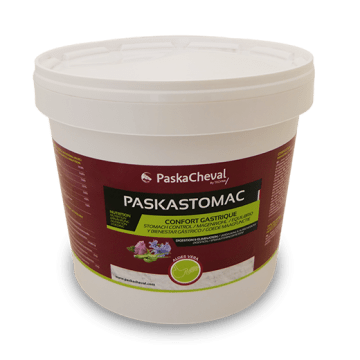The liver is the key to a horse's performance. It’s his factory for metabolising, filtering, eliminating... It’s a very busy organ. As a result, don’t wait until your horse’s liver is in distress to intervene and provide him with appropriate feed. Appropriate herbal supplements can also promote detoxification.
Do your horse look tired lately? Is he not in top condition? Yet, he has a well-balanced diet, you do not observe weight loss, or other more disturbing symptoms such as chronic fatigue, loss of appetite, or constipation... Be careful as the saying goes, “Prevention is better than cure”. Risky situations such as intensive training, a rich or possibly even too-rich diet, and the lactation phase in broodmares, can quickly saturate the liver. Result: it is important to relieve the strain on the horse’s liver at an upstream stage through monitoring and a balanced diet.





